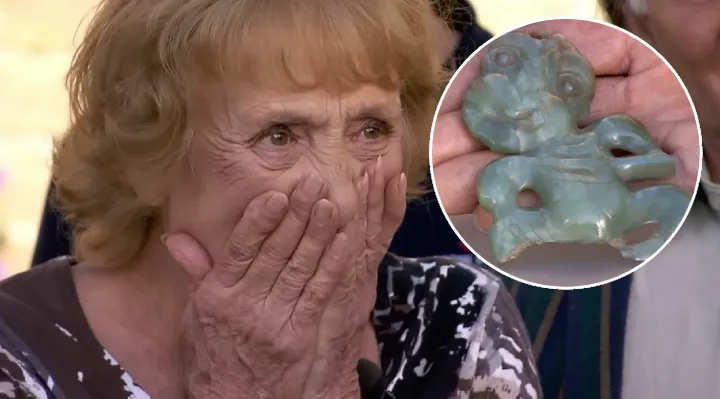An Earthquake Rattled His Store. Then He Noticed What The Sand Pendulum Created
September 21, 2016
When a magnitude 6.8 earthquake shook Olympia, Washington, in 2001, shop owner Jason Ward discovered that a sand-tracing pendulum had recorded the vibrations in the image below.

Credit: Jason Ward
For anyone wondering, this is how a sand pendulum works:
Ward says the rose-like shape was formed by the trembling pendulum during the 45 seconds the quake shook the Pacific Northwest.

Credit: Jason Ward
You can see two distinct pendulum motions here that relate to the type of seismic wave and their timing. The primary wave, or P wave, occurs first and is a short, vertical (up and down) movement. This is marked in the sand by the diamond shaped pattern in the background. Then there is pause (depending on how far you are from epicenter), giving the pendulum time to get back towards center. Then the secondary wave, or S wave, hits. The S wave is a more varied in its movements and last for a much longer time. This is the worm nest looking thing in the middle that has overwritten the center of the P wave pattern.
 Dogs Are Forced To Wear The Things They Steal — And It’s Hilarious
Dogs Are Forced To Wear The Things They Steal — And It’s Hilarious
 Meet Nazgul: The Dog Who Crashed An Olympic Ski Race And Nearly Won
Meet Nazgul: The Dog Who Crashed An Olympic Ski Race And Nearly Won
 Professor Watches His Student Compete At The Olympics After She Requested An Extension On An Assignment
Professor Watches His Student Compete At The Olympics After She Requested An Extension On An Assignment
 People Are Submitting Photos of Their Cats’ ‘Jobs’— And We Can’t Stop Laughing
People Are Submitting Photos of Their Cats’ ‘Jobs’— And We Can’t Stop Laughing
 Called At 1 A.M., Volunteers Rushed To Help A Son Say Goodbye To His Mother
Called At 1 A.M., Volunteers Rushed To Help A Son Say Goodbye To His Mother
 She Collects Trash 5 Days A Week With Her Dog — So A Resident Gifted Her Dog A Matching Vest
She Collects Trash 5 Days A Week With Her Dog — So A Resident Gifted Her Dog A Matching Vest
 He Ordered A Doctor Bag — But The Size Has Him Laughing Uncontrollably
He Ordered A Doctor Bag — But The Size Has Him Laughing Uncontrollably
 Mom Was About To Miss Her Flight, So A Stranger Picked Up Her Kid And Ran With Her
Mom Was About To Miss Her Flight, So A Stranger Picked Up Her Kid And Ran With Her
 Mom Red Fox Calls Her Adorable Pups Out For The First Time
Mom Red Fox Calls Her Adorable Pups Out For The First Time
 Woman Stunned By Valuation Of Rare Māori Jade Hei-Tiki Found In Her Garden
Woman Stunned By Valuation Of Rare Māori Jade Hei-Tiki Found In Her Garden
 She Gave Her Dad The One Thing He’d Been Searching For His Whole Life
She Gave Her Dad The One Thing He’d Been Searching For His Whole Life
